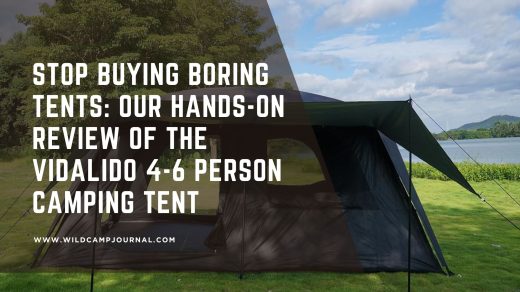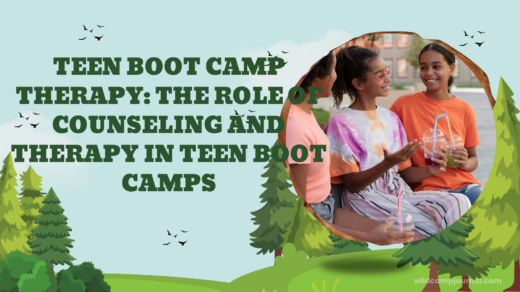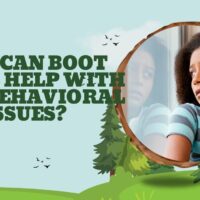Teen Boot Camp Therapy plays a crucial role in transforming troubled teens by combining discipline with counseling.
Discover how therapy in boot camps helps address emotional struggles, behavioral issues, substance abuse, and trauma.
Learn about different therapy types, including Cognitive Behavioral Therapy (CBT), family therapy, and substance abuse counseling.
Table of Contents
Explore the benefits, and challenges. Find out how to choose the right boot camp for your teen’s needs. Unlock the power of structured intervention for lasting behavioral change.
Teen boot camps have become a popular intervention for troubled youth, offering structured programs aimed at instilling discipline and responsibility.
These camps are designed to provide a strict, regimented environment where teens can learn respect, accountability, and self-discipline.
While the physical training and discipline-focused approach of these programs are widely recognized, one of the most crucial yet often overlooked aspects is the role of counseling and therapy.

Many teens who end up in boot camps struggle with deep-seated emotional and psychological issues.
These may stem from trauma, behavioral disorders, substance abuse, or troubled family dynamics. Simply enforcing strict rules and rigorous routines does not address the root causes of their struggles.
Without proper mental health support, teens may complete a boot camp program without making meaningful, lasting behavioral changes.
This is where therapy and counseling become vital components of a successful rehabilitation process.
Integrating therapy into boot camps ensures that teens receive the emotional support and psychological tools needed to change their behavior in a sustainable way.
Through individual counseling, group therapy, and family involvement, teens can work through their past experiences, develop healthy coping mechanisms, and gain the confidence needed to reintegrate into society as responsible individuals.
This article explores the significance of therapy in teen boot camps, the different therapeutic approaches used, the challenges faced, and the long-term impact of integrating mental health support into these programs.
Understanding Teen Boot Camps

Definition and History of Teen Boot Camps
Teen boot camps are structured residential programs designed to provide intervention for at-risk youth who struggle with behavioral issues, delinquency, or substance abuse.
Modeled after military training programs, these camps enforce strict discipline, routine physical training, and various activities aimed at promoting responsibility, teamwork, and respect for authority.
The concept of boot camps for troubled teens first emerged in the United States in the 1980s as an alternative to juvenile detention centers.
Lawmakers and juvenile justice advocates sought an approach that combined discipline with rehabilitation, hoping that the structured environment would deter youth from criminal behavior.
Over the years, the model has evolved, with many boot camps now incorporating counseling, therapy, and academic support to address the underlying issues contributing to delinquency.
Key Differences Between Boot Camps and Other Youth Intervention Programs
There are several types of intervention programs available for troubled teens, including residential treatment centers, therapeutic boarding schools, wilderness therapy programs, and juvenile detention centers.
While these programs share the goal of rehabilitating youth, they differ in their approach, structure, and effectiveness.
- Boot Camps vs. Residential Treatment Centers: Residential treatment centers focus more on therapy and psychiatric care, often employing licensed psychologists and therapists to work with teens struggling with severe mental health issues. In contrast, boot camps emphasize discipline, structure, and physical activity as their primary tools for behavior correction.
- Boot Camps vs. Wilderness Therapy Programs: Wilderness therapy programs use nature-based experiences, survival skills training, and group therapy to help teens build self-confidence and develop problem-solving skills. Boot camps, on the other hand, are typically more structured, with a rigid daily schedule that mimics military-style discipline.
- Boot Camps vs. Juvenile Detention Centers: Unlike juvenile detention centers, which serve as a legal consequence for criminal behavior, boot camps are often voluntary or court-ordered alternatives that focus on rehabilitation rather than punishment. While both involve strict rules, boot camps aim to prevent recidivism by instilling discipline and self-improvement skills.
- Boot Camps vs. Therapeutic Boarding Schools: Therapeutic boarding schools provide long-term academic and emotional support, allowing students to earn an education while receiving therapy. Boot camps are typically short-term and focus more on immediate behavior correction rather than long-term academic goals.
Common Misconceptions About Teen Boot Camps
There are many misconceptions surrounding teen boot camps, often fueled by media portrayals and outdated information.
Here are some of the most common myths:
- Boot camps are purely punitive: While early boot camps were modeled after military-style training with a focus on punishment and strict discipline, modern programs incorporate therapeutic approaches to address the root causes of behavioral issues.
- All boot camps are the same: Boot camps vary widely in their approach, structure, and effectiveness. Some focus heavily on physical endurance, while others integrate therapy, academic support, and family counseling.
- Boot camps work for every troubled teen: Not all teens respond positively to the rigid structure of boot camps. Some may require a different approach, such as residential therapy or outpatient counseling, depending on their mental health needs and personal history.
- Teens leave boot camps permanently changed: While boot camps can have a positive short-term impact, long-term success depends on continued therapy, family support, and reintegration strategies.
- Boot camps are always safe and effective: Unfortunately, not all boot camps follow ethical guidelines, and some have been criticized for harsh treatment methods. It is crucial for parents to research and choose a reputable program that prioritizes both discipline and emotional well-being.
The Psychological Needs of Troubled Teens

Common Behavioral and Emotional Challenges
Troubled teens often face a range of emotional and behavioral challenges that affect their decision-making, relationships, and overall well-being.
Many struggle with defiance, impulsivity, aggression, and a lack of emotional regulation.
Anger issues, low self-esteem, and difficulties in forming healthy relationships are also common.
In addition, some teens develop antisocial tendencies, withdrawing from their families and social circles.
They may engage in risky behaviors such as truancy, substance use, and delinquency as coping mechanisms.
Without intervention, these issues can escalate, leading to more severe consequences such as legal trouble or academic failure.
Therapy and counseling help address these challenges by teaching teens effective coping strategies and improving their emotional intelligence.
Impact of Trauma, Substance Abuse, and Family Issues
Many troubled teens have experienced past trauma, which significantly influences their behavior and emotional well-being.
Trauma can stem from physical or emotional abuse, neglect, bullying, or witnessing violence.
When left unaddressed, these experiences can result in anxiety, depression, and post-traumatic stress disorder (PTSD), all of which contribute to poor decision-making and behavioral issues.
Substance abuse is another major factor affecting many teens in boot camps.
Some turn to drugs or alcohol as a way to cope with emotional pain, peer pressure, or family issues.
Unfortunately, addiction further deteriorates their mental health and leads to destructive behaviors.
Addressing substance dependency through therapy is essential in ensuring long-term recovery and preventing relapse.
Family dynamics also play a crucial role in shaping a teen’s behavior.
A lack of parental guidance, an unstable home environment, or ongoing conflict between family members can push teens toward rebellion and risky behaviors.
Many teens in boot camps come from homes where communication is broken, making it difficult for them to develop trust and express their emotions.
Family therapy helps rebuild these connections and fosters a supportive environment for teens to heal and grow.
How Mental Health Conditions Influence Teen Behavior
Mental health conditions such as anxiety disorders, depression, ADHD, and conduct disorders significantly impact how teens behave and interact with the world around them.
For instance, a teen with untreated ADHD may struggle with impulse control, leading to disruptive or reckless behavior.
Similarly, a teen battling depression may display withdrawal, low motivation, or even self-harming tendencies.
In many cases, undiagnosed or untreated mental health disorders contribute to the very behaviors that land teens in boot camps.
Some may act out as a way to cope with feelings of hopelessness, while others may become aggressive due to a lack of emotional regulation.
Therapy in boot camps helps identify these underlying conditions and provides targeted interventions such as cognitive behavioral therapy (CBT) and trauma-informed care to support their emotional and psychological well-being.
The Role of Counseling in Teen Boot Camps

Definition and Importance of Counseling
Counseling is a structured process where trained professionals help teens explore their emotions, thoughts, and behaviors.
It provides a safe environment for adolescents to express their struggles and work through deep-seated issues that may be contributing to their behavioral problems.
The importance of counseling in teen boot camps cannot be overstated.
It plays a crucial role in addressing emotional trauma, improving self-esteem, and teaching essential life skills.
Without counseling, boot camps would only serve as disciplinary centers rather than transformational spaces where teens can heal and grow.
Counseling helps teens understand their triggers, identify their strengths, and develop strategies to make better choices in the future.
Types of Counseling Offered in Boot Camps
Boot camps integrate different types of counseling to meet the unique needs of each participant.
The most common types include:
- Individual Counseling: One-on-one sessions between the teen and a licensed therapist. These sessions provide a confidential space for discussing personal struggles, fears, and emotional wounds.
- Group Counseling: Conducted in a peer-supported setting where teens share experiences, learn from each other, and develop social skills. It fosters a sense of belonging and accountability.
- Family Counseling: Focuses on repairing relationships between teens and their family members. Parents are educated on how to support their child’s progress, communicate effectively, and set healthy boundaries.
- Substance Abuse Counseling: Designed for teens struggling with drug or alcohol addiction. These sessions help them understand the root causes of their addiction and equip them with strategies to achieve long-term sobriety.
- Crisis Intervention Counseling: Used in emergency situations where a teen may be experiencing a mental health crisis, self-harm tendencies, or severe emotional distress.
Each type of counseling serves a different purpose, and together they form a comprehensive support system that helps teens transition from destructive behaviors to positive growth.
How Counseling Helps Teens Develop Coping Mechanisms
One of the key benefits of counseling in teen boot camps is its role in teaching effective coping mechanisms.
Many troubled teens resort to unhealthy behaviors—such as aggression, isolation, or substance abuse—when dealing with stress, trauma, or peer pressure.
Counseling provides them with healthier alternatives, including:
- Emotional Regulation: Teaching teens how to manage anger, sadness, and anxiety in constructive ways rather than acting out impulsively.
- Problem-Solving Skills: Encouraging critical thinking and decision-making to handle conflicts and challenges responsibly.
- Communication Techniques: Helping teens articulate their thoughts and feelings in a non-confrontational manner, improving relationships with peers and authority figures.
- Mindfulness and Relaxation Strategies: Using techniques such as meditation, deep breathing, and self-reflection to reduce stress and enhance self-awareness.
- Building Self-Esteem: Helping teens recognize their strengths and develop a positive self-image, reducing the likelihood of engaging in risky behaviors.
By equipping teens with these coping mechanisms, counseling empowers them to break negative cycles and establish a healthier, more stable future.
The Different Types of Teen Boot Camp Therapy

Individual Therapy
Individual therapy involves one-on-one sessions between a teen and a licensed therapist.
These sessions provide a safe and confidential space for teens to discuss their struggles, fears, and emotional wounds.
The therapist helps the teen develop self-awareness, self-esteem, and coping skills tailored to their unique experiences.
For teens dealing with trauma, depression, or anxiety, individual therapy can be a transformative experience that fosters personal growth and emotional resilience.
Group Therapy
Group therapy brings teens together to share their experiences, challenges, and triumphs under the guidance of a trained therapist.
This setting allows participants to gain perspective from their peers, learn from others’ experiences, and develop essential social skills.
Group therapy also fosters a sense of belonging and support, which can be particularly beneficial for teens who feel isolated or misunderstood.
Encouraging open dialogue and accountability, these sessions help teens develop better communication and problem-solving skills.
Family Therapy
Family therapy is an essential component of many boot camp programs, as family dynamics play a significant role in a teen’s behavior and emotional well-being.
This type of therapy helps rebuild trust, improve communication, and address conflicts within the family unit.
Parents and guardians are often guided on how to support their teen’s progress and create a healthier home environment.
Strengthening family relationships can significantly enhance a teen’s chances of maintaining positive behavioral changes after leaving the boot camp.
Cognitive Behavioral Therapy (CBT)
CBT is a widely used therapeutic approach that focuses on changing negative thought patterns and behaviors.
In boot camps, CBT helps teens recognize harmful thinking patterns, understand how these thoughts influence their actions, and replace them with healthier coping mechanisms.
This therapy teaches problem-solving skills, emotional regulation, and effective ways to handle stress and conflict.
The long-term benefits of CBT extend beyond the boot camp, equipping teens with valuable skills for managing life’s challenges.
Trauma-Informed Therapy
Trauma-informed therapy acknowledges the impact of past trauma on a teen’s behavior and emotional well-being.
This approach ensures that therapy sessions are conducted in a safe and supportive environment, helping teens process their trauma without feeling judged or retraumatized.
Techniques such as mindfulness, grounding exercises, and gradual exposure therapy may be used to assist teens in overcoming traumatic experiences.
Boot camps that implement trauma-informed care provide an essential foundation for emotional healing and long-term recovery.
Substance Abuse Counseling
For teens struggling with substance abuse, specialized counseling is crucial.
Substance abuse counseling in boot camps focuses on understanding the root causes of addiction, developing strategies to prevent relapse, and promoting a drug-free lifestyle.
Detoxification support, peer encouragement, and structured routines help teens regain control over their lives.
Counselors often work closely with teens to set realistic recovery goals and equip them with skills to resist peer pressure and make healthier life choices.
The Role of Licensed Therapists in Boot Camps

Licensed therapists play a crucial role in ensuring that boot camps provide the necessary mental health support for troubled teens.
Their expertise helps create a structured, yet compassionate, environment where emotional healing can take place alongside disciplinary measures.
Qualifications and Expertise of Boot Camp Therapists
Therapists working in boot camps typically hold advanced degrees in psychology, counseling, or social work.
They are licensed professionals with extensive training in adolescent behavior, trauma recovery, and various therapeutic techniques.
Many have experience in working with at-risk youth and understand the unique challenges faced by troubled teens.
Assessing Individual Needs and Creating Personalized Treatment Plans
One of the key responsibilities of licensed therapists is conducting thorough assessments of each teen’s emotional and psychological state.
This includes evaluating past traumas, substance abuse history, family dynamics, and behavioral patterns.
Based on this assessment, therapists create personalized treatment plans that cater to each teen’s specific needs, ensuring they receive the most effective therapy.
Providing a Safe and Supportive Environment
Therapists in boot camps help maintain a safe space where teens feel comfortable expressing their thoughts and emotions.
Unlike the strict disciplinary approach that boot camps are known for, therapy sessions provide a non-judgmental setting where teens can open up about their struggles.
This balance between discipline and support fosters emotional resilience and self-awareness.
Utilizing Various Therapeutic Approaches
Licensed therapists employ a range of therapeutic techniques, including Cognitive Behavioral Therapy (CBT), trauma-informed care, and family therapy.
These methods help teens develop healthier coping mechanisms, improve emotional regulation, and rebuild relationships with family members.
Ethical Considerations in Therapy for Teens
Providing therapy in a boot camp setting comes with ethical responsibilities.
Licensed therapists must ensure that teens receive therapy voluntarily and are not coerced into participation.
They must also adhere to confidentiality standards and work within the ethical guidelines established by professional counseling and psychology boards.
Ethical therapy ensures that teens are not subjected to emotional harm and that their well-being remains the top priority.
Monitoring Progress and Long-Term Follow-Up
Therapists do not only work with teens during their time in boot camps but also focus on long-term recovery.
Regular progress monitoring, follow-up sessions, and aftercare recommendations help ensure that the improvements made during the program translate into lasting behavioral changes.
Many boot camps offer continued counseling or referrals to external therapists to support teens as they transition back into their daily lives.
How Therapy Supports Discipline and Structure in Boot Camps

A structured and disciplined environment is a core aspect of teen boot camps, but without emotional and psychological support, this structure can feel overwhelming or even punitive.
Therapy plays a vital role in ensuring that discipline is balanced with emotional guidance, leading to a healthier and more effective rehabilitation process.
Providing Emotional Regulation Skills
Teens who struggle with behavioral issues often have difficulties managing their emotions.
Therapy helps them develop emotional regulation techniques, allowing them to respond to authority and rules in a constructive manner rather than reacting impulsively.
Reinforcing Positive Behavior
Counseling provides a space for teens to understand the reasoning behind the rules and expectations set in boot camps.
Instead of merely following commands, they begin to see how discipline can lead to personal growth and self-improvement.
Reducing Resistance to Authority
Many teens sent to boot camps have a history of defying authority figures, whether at home or school.
Therapy helps address the root causes of this defiance, making them more receptive to the guidance provided by boot camp instructors.
Preventing Emotional Breakdown in High-Stress Environments
Boot camps can be intense, with strict schedules and physical training.
Without therapeutic intervention, some teens may feel overwhelmed.
Therapy provides coping strategies that help them handle stress and frustration in a constructive way.
Developing Self-Discipline and Responsibility
Therapeutic techniques such as Cognitive Behavioral Therapy (CBT) help teens recognize the consequences of their actions and develop self-discipline.
This mental shift makes them more likely to adhere to structure and rules, even after they leave the boot camp.
Encouraging Teamwork and Social Skills
Group therapy sessions allow teens to engage with peers in a structured setting.
This interaction fosters teamwork, communication, and mutual respect, reinforcing the social aspects of discipline.
Long-Term Benefits Beyond Boot Camp
The combination of structure and therapy helps teens integrate discipline into their daily lives even after they complete the program.
They learn not only to follow rules but to understand their purpose, leading to long-lasting behavioral improvements.
Challenges and Criticisms of Therapy in Boot Camps

Effectiveness Debate
The effectiveness of teen boot camps, particularly those incorporating therapy, remains a topic of debate.
While some studies suggest that structured environments help instill discipline and create positive behavioral changes, others argue that the effects may be temporary without continued support.
Long-term success often depends on post-camp counseling and family involvement.
Additionally, critics point out that therapy in a boot camp setting may not be as effective as therapy in traditional rehabilitation programs, where there is a greater emphasis on individual emotional well-being over strict discipline.
Potential Risks of Forced Therapy
One major concern is the issue of consent. Many teens enrolled in boot camps do not voluntarily seek therapy, which can lead to resistance and lack of engagement.
Therapy is most effective when participants are willing to open up and participate in the healing process.
In some cases, forced therapy can have adverse effects, leading to increased frustration, distrust, or even trauma if not handled correctly.
Furthermore, boot camps that do not employ licensed professionals may implement therapy techniques improperly, potentially worsening a teen’s psychological state rather than improving it.
Ensuring Ethical Standards
Ethical concerns arise when therapy is administered in an environment that prioritizes discipline over mental health.
To ensure ethical treatment, boot camps should be regulated and required to employ licensed therapists with experience in adolescent psychology.
Programs must also ensure that therapy sessions are conducted in a safe and confidential manner.
Additionally, teens should have access to mental health professionals who can assess their needs and adjust treatment plans accordingly.
Transparency with parents about the methods used and the progress of their child is also crucial for maintaining ethical integrity.
Alternatives to Boot Camps for Troubled Teens

While boot camps can be effective for some teens, they are not the only option available.
Parents and guardians should explore different alternatives that align with their child’s needs and challenges.
Here are some of the most effective alternatives:
Residential Treatment Centers (RTCs)
RTCs provide long-term care for troubled teens, offering structured programs that include therapy, academics, and life skills training.
Unlike boot camps, RTCs emphasize emotional healing and behavioral therapy over physical discipline.
Wilderness Therapy Programs
These programs take troubled teens into nature, using outdoor activities to teach teamwork, self-reliance, and personal growth.
Therapy sessions are integrated into the experience, helping teens develop confidence and problem-solving skills.
Therapeutic Boarding Schools
These schools offer both academic and psychological support for struggling teens.
They provide a structured environment with therapy, counseling, and mentorship to ensure emotional and academic progress.
In-Home Counseling and Family Therapy
For families who prefer to keep their teens at home, in-home counseling can be a great alternative.
Licensed therapists work with both the teen and their family to address behavioral issues and improve communication within the household.
Outpatient Therapy Programs
Some teens may benefit from attending therapy sessions while continuing to live at home.
Outpatient programs offer counseling, group therapy, and mentorship without the need for full-time residential care.
Mentorship and Youth Programs
Local community programs, mentorship initiatives, and after-school activities provide positive role models and a support system that can guide teens away from negative influences.
By considering these alternatives, parents can choose the most suitable intervention that aligns with their teen’s unique challenges and needs.
How to Choose the Right Teen Boot Camp with Therapy

Choosing the right teen boot camp with therapy is a critical decision that requires careful consideration.
Not all boot camps offer the same level of therapeutic support, so parents must do their due diligence before enrolling their child.
Here are some key factors to consider:
Accreditation and Licensing
Ensure the boot camp is accredited by a reputable organization and that it employs licensed therapists and counselors.
A legitimate program should adhere to strict ethical guidelines and state regulations.
Type and Quality of Therapy Offered
Investigate what types of therapy the camp provides.
The best programs offer a mix of individual therapy, group counseling, family therapy, and evidence-based treatments like Cognitive Behavioral Therapy (CBT) and trauma-informed care.
Staff Qualifications and Experience
Look into the credentials of the camp’s therapists and counselors.
Experienced professionals with backgrounds in adolescent psychology and behavioral therapy are essential for effective treatment.
Success Rates and Testimonials
Check reviews, testimonials, and case studies from former participants and parents.
Reliable programs should have a track record of success stories that demonstrate their effectiveness.
Individualized Treatment Plans
Each teen has unique needs.
A good boot camp should assess each participant and create personalized treatment plans tailored to their behavioral and emotional challenges.
Family Involvement and Support
Programs that integrate family therapy and offer parental guidance are more likely to result in lasting improvements.
Strong family support enhances the rehabilitation process.
Aftercare and Follow-Up Support
Rehabilitation doesn’t end when the program does.
Look for boot camps that provide aftercare programs, follow-up therapy, or transition support to help teens reintegrate into everyday life successfully.
Ethical Treatment and Safety Measures
Make sure the program follows ethical guidelines, has clear policies against abuse, and prioritizes the safety and well-being of participants.
Cost and Financial Aid Options
Boot camps can be expensive. Check if there are financial aid programs, scholarships, or insurance options to help cover the costs.
Warning Signs to Avoid
Be cautious of programs that use excessive discipline without psychological support, have high rates of complaints, or lack transparency about their methods.
Red flags include unlicensed staff, abusive tactics, and unrealistic promises of “quick fixes.”
By carefully considering these factors, parents can choose a teen boot camp that provides both structure and the therapeutic support necessary for lasting positive change.
Final Thoughts
Counseling and therapy play a crucial role in the effectiveness of teen boot camps.
While discipline and structure help instill responsibility, therapy provides the emotional and psychological support needed for lasting change.
A holistic approach that balances strict routines with professional counseling ensures that troubled teens do not just conform temporarily but truly transform their behaviors and mindsets.
Programs that integrate therapy into their boot camp model foster self-awareness, emotional resilience, and positive coping strategies in teens.
Ultimately, the goal is not just to correct behavior but to empower teens with the tools they need to navigate life’s challenges, build healthy relationships, and make better choices in the future.
When choosing a boot camp, parents should prioritize those that offer structured therapy, ensuring their child receives comprehensive care that leads to long-term success.
FAQs
Are teen boot camps effective for long-term behavior change?
The effectiveness of teen boot camps for long-term behavior change depends on several factors, including the integration of therapy, the individual’s personal circumstances, and the quality of the program. While some teens show improvement in discipline and behavior during their time in a boot camp, long-term success often requires continued therapy and family support. Without proper aftercare, many teens may revert to old behaviors. Programs that combine structured discipline with counseling have a higher chance of facilitating lasting change.
What types of teens benefit the most from counseling in boot camps?
Teens who struggle with behavioral issues, mild to moderate mental health concerns, substance abuse, or lack of discipline can benefit from counseling in boot camps. Those who have difficulty managing anger, following rules, or coping with emotional distress often find therapy in a structured environment helpful. However, teens with severe psychiatric disorders or those requiring intensive psychological care may need a more specialized treatment facility.
How long does therapy in boot camps typically last?
Therapy duration in boot camps varies based on the program and the teen’s needs. Most boot camps run from a few weeks to several months, with therapy sessions occurring regularly during the program. After the boot camp ends, ongoing therapy, either in a school setting, at home, or through outpatient services, is often recommended to ensure long-term success.
What are the risks of sending a teen to a boot camp?
Some risks of boot camps include emotional distress, lack of individualized therapy, and potential exposure to harsh disciplinary measures. Not all boot camps are properly regulated, which may lead to ineffective or even harmful treatment methods. It is crucial to research programs thoroughly, ensuring they have licensed therapists and a balanced approach to discipline and counseling.
Can therapy in boot camps help with severe mental health disorders?
While therapy in boot camps can assist with mild to moderate mental health conditions, it may not be sufficient for teens with severe disorders such as schizophrenia, severe PTSD, or extreme depression. These cases often require specialized care in psychiatric or residential treatment centers. Parents should consult with mental health professionals before choosing a boot camp for a teen with complex psychological needs.


















